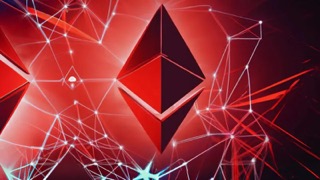On Wednesday, LayerZero Labs, a firm that develops protocol to enable omnichain decentralized applications, or dApps, to span multiple blockchains, announced that it raised $135 million in its latest funding round. The deal values LayerZero Labs at $1 billion and will accelerate the development of its namesake protocol.
The round was led by notable venture groups and investors such as Sequoia Capital, FTX Ventures, Andreessen Horowitz, and with participation from Coinbase Ventures, PayPal Ventures, Tiger Global, Uniswap Labs, and more.
It aims to unite applications such as gaming, nonfungible tokens, or NFTs, marketplaces, media apps, etc., so they are operable across multi-chain realms. Potential new use cases via LayerZero include: decentralized finance applications utilizing trading, borrowing, and lending across multiple blockchains; games and media dApps having high-throughput transactions relocated to one blockchain while buying and selling NFTs onto other blockchains with the most liquid markets.
Following the beta launch of LayerZero, the firm recently launched Stargate, a cross-chain liquidity transfer protocol. In just 10 days post-launch, LayerZero says that Stargate has surpassed $3.4 billion in assets secured, with over $264 million in transfers over LayerZero. The developers’ next steps involve integrating the LayerZero protocol with non-Ethereum Virtual Machine blockchains such as Solana (SOL) and Terra (LUNA). Ryan Zarick, CTO and co-founder of LayerZero Labs, gave the following remarks:
“Users will interact with omnichain dApps that exist on multiple blockchains, which will seamlessly communicate over LayerZero without the user even realizing it.”
Meanwhile, Ramnik Arora, an investor at FTX Ventures, added:
“LayerZero allows smart contracts on one chain to seamlessly and securely leverage the network of another chain, increasing the value of the entire blockchain ecosystem. The team is a rare combination of vision and technical execution.”
Related: Cross-chain bridge tokens moon as crypto shifts toward interoperability
Read More: cointelegraph.com









 Bitcoin
Bitcoin  Ethereum
Ethereum  Tether
Tether  Solana
Solana  USDC
USDC  XRP
XRP  Lido Staked Ether
Lido Staked Ether  Dogecoin
Dogecoin  Toncoin
Toncoin  Cardano
Cardano  Shiba Inu
Shiba Inu  Avalanche
Avalanche  TRON
TRON  Wrapped Bitcoin
Wrapped Bitcoin  Polkadot
Polkadot  Bitcoin Cash
Bitcoin Cash  Chainlink
Chainlink  NEAR Protocol
NEAR Protocol  Polygon
Polygon  Litecoin
Litecoin  Fetch.ai
Fetch.ai  Internet Computer
Internet Computer  Uniswap
Uniswap  LEO Token
LEO Token  Dai
Dai  Render
Render  Ethereum Classic
Ethereum Classic  Hedera
Hedera  First Digital USD
First Digital USD  Aptos
Aptos  Cosmos Hub
Cosmos Hub  Mantle
Mantle  Cronos
Cronos  Pepe
Pepe  Filecoin
Filecoin  Immutable
Immutable  Stacks
Stacks  Wrapped eETH
Wrapped eETH  Stellar
Stellar  XT.com
XT.com  OKB
OKB  dogwifhat
dogwifhat  Renzo Restaked ETH
Renzo Restaked ETH  Bittensor
Bittensor  Optimism
Optimism  Arbitrum
Arbitrum  The Graph
The Graph  Maker
Maker